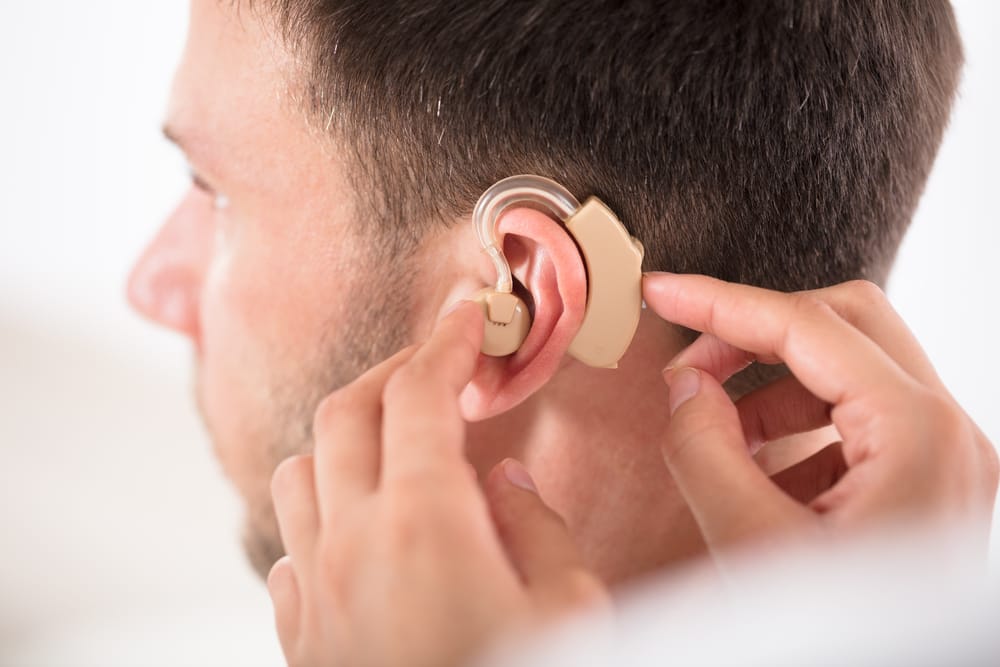Certain types of hydrocodone, one of the most commonly prescribed opioid painkillers and the most commonly prescribed medication of any kind in the United States, can cause permanent hearing loss in people who abuse the drug. In the late 1990s, the House Clinic in Los Angeles began seeing more patients who were experiencing rapidly progressive hearing loss after taking high doses of Vicodin, a prescription painkiller. In cases where the problem was recognized early enough, a course of steroids helped reverse some of the hearing loss. However, the large number of patients suffering permanent, irreversible deafness prompted the House Ear Institute’s research scientists to conduct a study on combination hydrocodone-acetaminophen painkillers and hearing loss. The research revealed that hydrocodone-acetaminophen abuse was likely the underlying cause of the hearing damage in a significant number of patients.
The Prescription Painkiller and Hearing Loss Connection
Prescribed by doctors, dentists and other clinicians as Vicodin, Norco, Lortab, Hysingla and its generic counterparts, hydrocodone is a semi-synthetic opioid that is combined with acetaminophen as an analgesic. Intended for short-term use to relieve pain, the opioid component of the medication is highly addictive. As addiction sets in, patients often renew their prescription and begin taking higher doses, at which point the acetaminophen levels in the drug become ototoxic—poisonous to the ear. Although their research findings were still preliminary, the House Ear Institute alerted the U.S. Food and Drug Administration (FDA) that in addition to hydrocodone-acetaminophen’s known potential for liver damage, the pain medication also carried a potential risk for permanent hearing loss when taken at high doses. The FDA responded by requiring that hydrocodone-acetaminophen medications include additional warnings of ototoxicity on pharmacy labels. Despite the warnings of these side effects and others, hydrocodone abuse has continued unabated since the late 1990s. Since the dose-level at which liver damage and hearing loss can occur is still unknown, many people with hydrocodone addictions have switched to alternate opioid medications that don’t contain acetaminophen. Unfortunately, while this tactic may mitigate the risk for some of the damaging side effects, the risk for other effects, such as breathing problems, medication toxicity and overdose, remain high.
Preventing Opioid Addiction and Dangerous Side Effects
Anyone can become addicted to opioid medications, even when they’re prescribed by a doctor or dentist. Because of their addictive properties, opioids can lead to dependency and addiction within a matter of days, depending on the dosage. If the dose is high enough (over 20 to 30 MME), an opioid painkiller can have you experiencing withdrawal symptoms and cravings within five to seven days after you started taking the pills. For some, symptoms of drug tolerance and withdrawal occur after roughly five days on a prescribed course of pain treatment, leaving them in even worse pain once they stop taking the medication. Withdrawal symptoms occur when the body develops physical tolerance to a drug. To avoid falling into this trap, here are some things to discuss with your doctor or dentist when they are prescribing you pain medication:
- Request a non-addictive alternative painkiller. Some options include non-opioid analgesics, non-steroidal anti-inflammatory medications (NSAIDs), local anesthetics, some anticonvulsants (gabapentin or pregabalin) and certain antidepressants (tricyclic or SNRIs). You may need to work with your healthcare provider to determine which alternatives are covered by insurance.
- Request a non-medication pain management plan, which may include physical therapy, relaxation techniques and alternative modalities (e.g., acupuncture).
- If an opioid medication is advised, request the lowest effective dosage and only a short-term course of treatment (e.g., five to seven days). Follow the dosing guidelines and remember to properly dispose of any unused opioid prescriptions to keep other household members safe.
Sources: “Profound hearing loss associated with hydrocodone/acetaminophen abuse”. RA Friedman, JW House, WM Luxford, S Gherini, D Mills. American Journal of Otology, March 2000. https://www.ncbi.nlm.nih.gov/pubmed/10733182 “House vs. House: Vicodin Addiction and Hearing Loss”. John House, MD. ABC News, September 2008. https://abcnews.go.com/Health/PainNews/story?id=5841784&page=1 “Implications of Sensorineural Hearing Loss with Hydrocodone/Acetaminophen Abuse”. A Novac et al. The Primary Care Companion for CNS Disorders, NCBI – PubMed, September 2015. https://www.ncbi.nlm.nih.gov/pubmed/26835162 “Hydrocodone use and sensorineural hearing loss”. T Ho, JT Vrabec, AW Burton. Pain Physician, May 2007. https://www.ncbi.nlm.nih.gov/pubmed/17525781 “Pharmacokinetic evaluation of hydrocodone/acetaminophen for pain management”. A Singla, P Sloan. Journal of Opioid Management, January 2013. https://www.ncbi.nlm.nih.gov/pubmed/23709306 “Hydrocodone Combination Products”. Medline Plus, January 2017. https://medlineplus.gov/druginfo/meds/a601006.html

